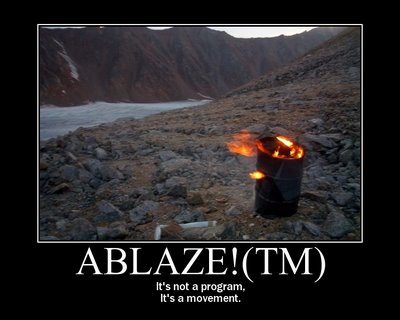 29 October 2006 at Salem Lutheran Church, Gretna, LA
29 October 2006 at Salem Lutheran Church, Gretna, LA
Text: John 8:31-36 (Romans 3:21-28) (Historic)
In the Name of + Jesus. Amen.“We are Abraham’s descendants, and have never been in bondage to anyone.”
This is one of those statements that would have made a lesser man than our blessed Lord just look at the speaker in a stupor, with mouth agape, unable to find words to use in reply.
For we all know the story. The descendants of Abraham, Isaac, and Jacob had been in bondage for 400 years in Egypt. Even non-religious Jews know this part of their history, as Moses is the central figure in the Old Testament, as he is the Christ-like liberator of his enslaved countrymen. The word “slavery” is right in the prologue to the Ten Commandments, and even after being set free from Egypt, the entire history of Israel focuses on the nation being held captive by some empire or other: the Babylonians, the Persians, the Greeks, and at the time of Jesus, the Romans.
“We have never been in bondage…”
That statement shows just how far gone in bondage they had become. So unable to see beyond their own shackles, they have deluded themselves into believing the Orwellian sentiment that “slavery is freedom.” Indeed, it calls to mind the cruel ironic (and demonic) sign over the Auschwitz death camp that said: “Work makes freedom.”
For Jesus is not only talking about bondage to sin that refers to our constant falling into sinful attitudes and behaviors. Jesus is referring to something much more pathological and diabolical, a manifestation of sin that not only makes us break the Ten Commandments, but even short-circuits our ability to think rationally, to perceive what is real.
For sin causes blindness to simple reality (which is why Jesus so often cured the blind). Sin robs us of the ability to think clearly (which is why the demonically possessed act as though mad). Sin deludes us into thinking we can create our own reality just by thinking and speaking what we wish it to be (when, in fact, only God can create by the mere power of the Word). We call this superstition “postmodernism” today, but indeed, it’s as old as sinful man himself. Perhaps it should be renamed as “pre-primitivism.”
This explains how gifted scientists of our day can actually believe the superstition that things suddenly appeared apart from a Creator, and purely by accident, order and harmony in the universe just sprang into being out of nothing. It’s pure madness and delusion. No-one could look at a complex skyscraper and conclude it just got there by accident, and yet these most learned people think that things infinitely more complex – even the simplest of life-forms – did just that. Sin blinds intelligent people from plain, self-evident reality, and turns them into fools who cling to cleverly devised myths and outright falsehoods over and against the obvious.
Similarly, there is simply no other explanation for this remarkable claim: “we have never been in bondage to anyone.” It is demon-speak. These words are pathetic examples of a troubled soul in denial, of a man on his deathbed who claims he is getting stronger by the minute (even as death wraps him up like a boa constrictor). This is an example of what our Lord calls “the blind leading the blind.”
And this, dear brothers and sisters, is the worst form of bondage of all. This is the kind of slavery that only be overcome by a Liberator with a capital “L”.
For when Moses led the children of Israel out of bondage, he himself was led by the Word of God, the Word which became flesh and tabernacled among us, the Word of God that took the form of a Rock, and when struck, produced streams of living and saving water.
Every prophet from Moses down to John the Baptist spoke as called and ordained servants of the Word. They all acted as liberators, with a small “L”, speaking on behalf of, and empowered by, the Liberator who is God incarnate, the One who has the authority to free all flesh from the bondage to sin and the chains of death.
The apostles acted as liberators, just as has every faithful minister of Christ, just as every doctor of the church, just as every unworthy preacher who ascends the steps of the pulpit in fear, fighting back against what his own flesh and the devil are telling him.
It is against this backdrop of stating the obvious in the face of diabolical delusion that the reformers of the movement that would come to be mocked by the name “Lutheranism” spoke to those held in bondage of their own day.
When Martin Luther, after his own intense struggles against the devil and his own feelings of unworthiness and fear of God, began to study the Scriptures, he heard the voice of Jesus telling him: “The Son makes you free, you shall be free indeed.”
Father Martin, the doctor of sacred scripture, the preacher, the theologian, did nothing but state the obvious, the simple words of St. Paul in the Book of Romans that were written nearly two millennia ago, and read here just a few minutes ago. The “righteousness of God” is “apart from the law.” We are “justified freely by his grace through the redemption that is in Christ Jesus… by faith.” God has “passed over the sins that were previously committed” – just as the freed Israelite slaves were passed over by the angel of death. God is the “justifier of the one who has faith in Jesus.”
And if all of this is true, dear Christians, what do we have to brag about? That we’re Lutherans? We did nothing to deserve the grace, the free gift of the Gospel. It has been handed to us on a silver platter – not one bearing the head of the Baptist, but one bearing the Body and Blood of the Lord Himself! “Therefore, we conclude that a man is justified by faith apart from the deeds of the law.”
The simple teaching of these comfortable words, words inspired by God himself, is the Good News. Not just any good news, but Good News, with a capital “G” and a capital “N”. This Good News is the Gospel, and it is the very lifeblood of the Christian, for it is the very Blood of our Lord Jesus shed for us, for the forgiveness of sins.
And the Christian Church has always repeated St. Paul’s proclamation. Preachers of the Church Catholic have always preached this Gospel, even unto death. For Jesus bridges the gap between God and man, by being God and Man; and he brings life out of death by rising to life from death; and by defeating the devil on our behalf, we too are more than conquerors. This Good News is the very essence of the catholic faith itself.
For listen to these words preached a thousand years before Luther by St. John Chrysostom, the Patriarch of Constantinople:
“All, then, who run to Christ are saved by his grace and profit from his gift. But those who wish to find justification from the Law will also fall from grace. They will not be able to enjoy the King’s loving-kindness because they are striving to gain salvation by their own efforts; they will draw down on themselves the curse of the Law because by the works of the Law no flesh will find justification.”
And let us drink from the well of the preaching of Pope St. Clement, the fourth Bishop of Rome, who died around the year 100 AD:
“We also, being called through God’s will in Christ Jesus, are not justified through ourselves, neither through our own wisdom or understanding, or piety, or works which we have done in holiness or heart, but through faith.”And hear the sanctified proclamation of St. Polycarp, the second century Bishop of Smyrna who was martyred for the sake of the Gospel in his old age:
“I know that through grace you are saved, not of works, but by the will of God, through Jesus Christ.”And listen to the grace-filled preaching on Holy Baptism by the fourth century Bishop of Jerusalem, St. Cyril:
“Bearing your sins, you go down into the water; but the calling down of grace seals your soul and does not permit that you afterwards be swallowed up by the fearsome dragon. You go down dead in your sins, and you come up made alive in righteousness.”And a preacher from the same period, St. Basil the Great, Bishop of Caesarea, proclaims the Gospel to us anew in these stirring evangelical words:
“For prisoners, baptism is ransom, forgiveness of debts, the death of sin, regeneration of the soul, a resplendent garment, an unbreakable seal, a chariot to heaven, a royal protector, a gift of adoption.”
And so it was inconceivable to Dr. Luther that saying the same thing that the Church has been saying since day one, the same Gospel preached a thousand years before, would be considered heresy by the Church leaders of his own day. He and his fellow reformers and scholars from the University of Wittenberg stand in the long train of preachers of the Gospel from the time of our Lord, of St. Paul and the apostles, of the apostolic fathers, and of the earliest popes, doctors, councils, and canons of the Church. They are all simply stating the obvious as found in the Bible. For any Christian to deny the Gospel preached by Luther is as remarkable and hard to fathom as the descendants of the Exodus looking Jesus right in the eye and denying that they have ever been slaves.
And just as sin blinded these Jews (these
believing Jews), from their own history, so also sin blinded the medieval Church (these
believing Christians), from their own history, and from the Gospel that the Church is charged to preach.
For lest we get on our high horses about the reception Luther got from his own church leaders in the sixteenth century, let’s not forget the reception he continues to get from our own leaders in the twenty-first century who are equally scandalized by this Gospel. And before we judge them too harshly, let us remember our own sinful flesh that rebels against the Gospel, the flesh that drives us to sin, and constantly lusts for credit for our deeds over and against the free gift of grace.
We are all guilty, and all of us children of Abraham have been slaves to sin. And thanks be to God that we have a Savior, a bearer of Good News, a Liberator. May the Church continue in this proclamation, and may the Lord continue to raise faithful evangelical ministers, preachers of the Gospel, whether they serve as popes or patriarchs, bishops or priests, pastors or professors. And when our sinfulness gets the best of us to where we forget this Gospel, whether now or a thousand years from now, let us continually pray that the Lord will raise courageous reformers, who will not only remind us of our bondage, but who will also call to mind our freedom from that bondage – which is only by the grace and mercy of God through the merits of Jesus Christ our Lord. Amen.
In the Name of the Father and of the + Son and of the Holy Spirit. Amen.
 There is a new translation of the Bible out there called The Message//Remix: The Bible in Contemporary Language.
There is a new translation of the Bible out there called The Message//Remix: The Bible in Contemporary Language.



